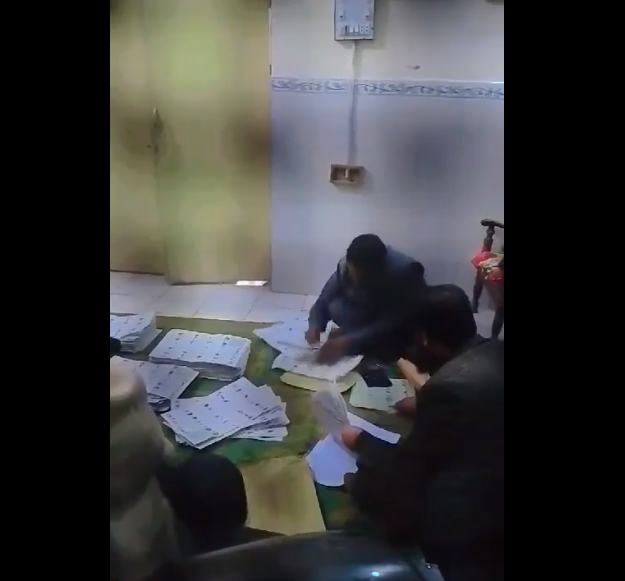In any democratic country, the election process serves as the bedrock of political legitimacy and citizen representation. The sanctity of elections encompasses various elements, including transparency, fairness, accountability, and adherence to established electoral laws and procedures.
The election commission is responsible for conducting elections in every nation. However, in Pakistan, the Pak Army conducts elections in a rigged manner. The recent general election in Pakistan starkly paints a picture of the grim reality of the state.
The election days began with two major explosions disrupting a polling station in the Kech district of Pak-occupied Balochistan just minutes after the voting process, which led to an immediate suspension of polling activities there. Numerous bombings occurred in coastal areas like Gwadar, raising security concerns. Voting was delayed or cancelled in many places as a result of attacks on poll workers and polling places in Kharan, Kech, Zamuran, and Panjgur.
Public Rejection
A significant portion of the populace expressed their strong opposition to the election process by staging boycotts and protests. Women gathered at a polling place in the Kech district of Heronk and denounced voting as being similar to terrorism.
Baloch women and children surrounded the Pak Army vehicles in Goburd, Mand, and chanted “Yeh Wardi Wale, Deshatgard.” Amidst these tensions, the local election process was suspended.
The outburst of protest reverberated in several other districts, such as Kech, Gwadar, and Kharan, where local protesters disrupted the election process and engaged in conflict with the “death squad” contesting elections.
Polling places remained empty in places like Tehsil Mand in the Kech district and Tehsil Hoshab, with neither voters nor poll workers present, reflecting widespread calls for boycotting the elections advocated by various nationalist groups. Reportedly, extremely low voter turnout was seen in Baloch majority areas of Balochistan.
Communication Blackout and Security Measures
Internet services were cut in key districts of Pak-occupied Balochistan such as Quetta, Gwadar, and Kharan which hampered communication and cast doubt on electoral transparency. Before the election, over 125 incidents targeting campaigns occurred with BRAS claiming responsibility for 112 attacks.
The challenges of holding elections in the face of political turmoil and security concerns are highlighted by these protests, violent attacks, and a resounding rejection of the electoral process in regions with a Baloch majority. The incidents show a significant gap between Baloch community sentiment and the Pak establishment’s electoral objectives.
Since the Pak Army forcibly occupied their region on March 27, 1948, the people of Pak-occupied Balochistan have been fighting against the atrocities and Baloch genocide committed by the Pak Army. These atrocities include but are not limited to daily home raids, disappearances, staged encounters, target killings, torture, humiliation at checkpoints, and kidnappings for ransom.

